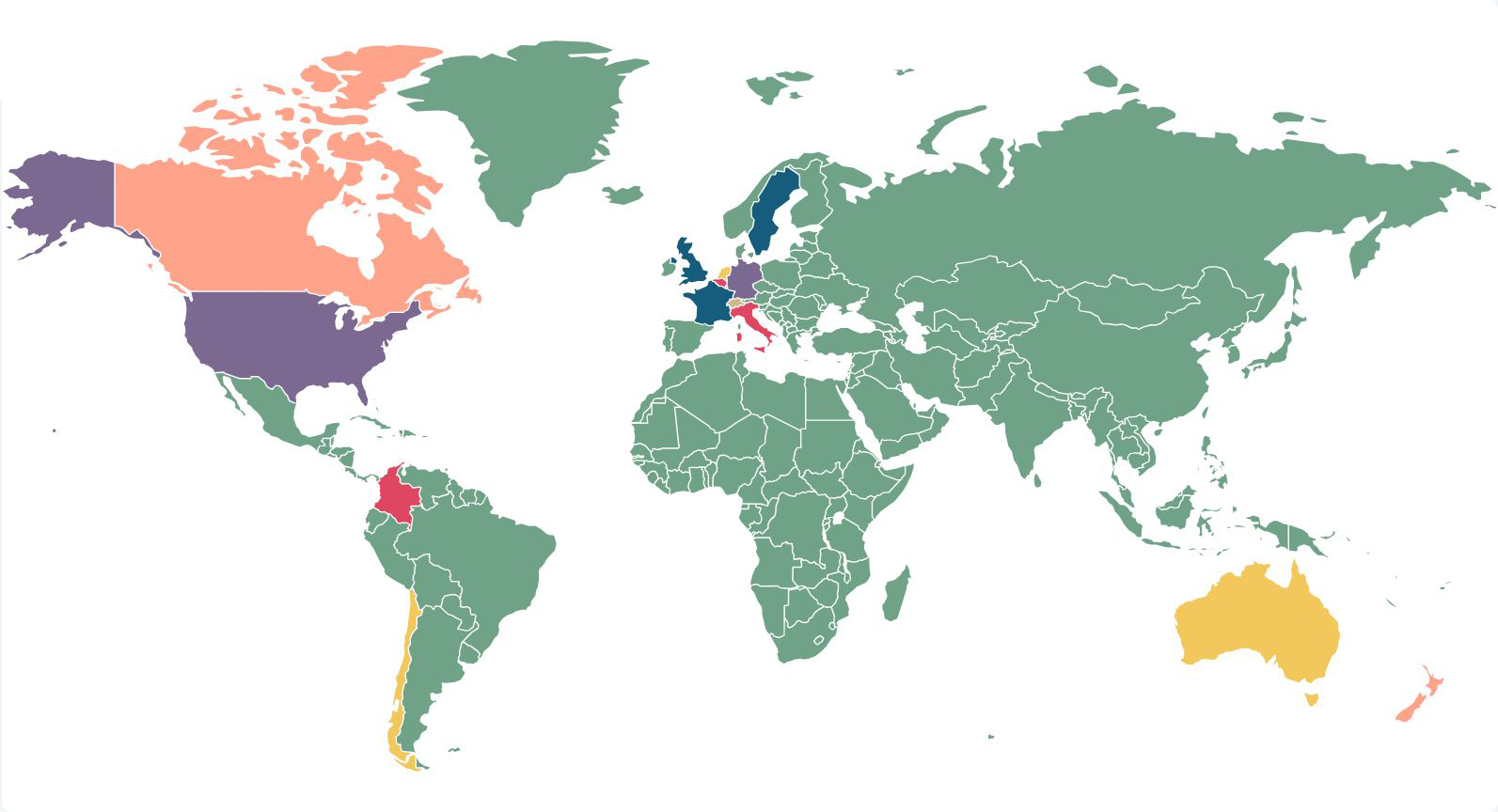AI-generated disinformation is a risk to watch
AI-generated disinformation campaigns are expected to heighten political unrest and violence globally. Incidents in 2024 serve as examples: fake stories about public officials, UK riots sparked by false social media information, and disinformation targeting French elections. As generative AI becomes more accessible and sophisticated, there is a risk of it being weaponised to push radical narratives and conspiracy theories, such as fabricated coup attempts or amplified extremist content on social media platforms. Increasing public distrust may spark widespread civil unrest, heighten geopolitical tensions, and lead to targeted political violence and terrorism.
Climate change will drive increasing political unrest
Climate change could develop a direct and more obvious correlation with political violence. The effects of climate change are well known – drought, famine and mass migration. Each of these may have a significant impact on the already heightened world tensions and predicted increase in political violence. Already unstable governments may struggle with the increasing needs of their populations in response to a heating planet and changing international views on the subject of foreign aid. The political violence and terrorism market will need to be wary in the coming 12 months when it comes to risks located in areas bearing the brunt of climate change.
The Black Sea corridor remains closed, but Ukraine grain exports continue (and need insuring)
The market will continue to insure, but keep a close eye on, Ukrainian grain exports. Last year we noted that the closing of the Black Sea corridor for Ukraine's substantial grain exports may have an indirect impact of increased risk of political violence in nations reliant upon the UN World Food Program. During the last 12 months, Ukraine has succeeded in boosting its exports via a combination of hugging the Black Sea coast where Russian submarines cannot operate and via the Danube river. The Black Sea fleet's partial redeployment has also assisted the security situation (and insurance rates). With the war unlikely to cease in the short to medium term, the insurance market will need to monitor the status of Ukrainian port facilities as well as the potential targeting of grain shipments by Russian forces.
Cold War resurgence will lead to increased focus on insurance cover
Shifts in global alliances may increase the need for and exposure of many insurance lines. A recent joint article by the heads of MI6 and the CIA noted that the world order was currently under a scale of threat not seen since the Cold War. While nations differ on the degree to which Russia is excluded from the global economic and trade system, it is not just the war in Ukraine that has heightened global risk. Ongoing events in the Middle East, together with the resurgence of Islamist extremism in the form of Boko Haram and a resurgent Islamic State, mean the risks faced around the world are numerous and multi-faceted. Insurance plays a huge role in managing these risks to enable trade, commerce and safety to continue and we predict the insurance industry will continue to develop innovative means of cover across the spectrum.
Organised crime in Latin America will intensify the need for policy wording clarification
As organised crime evolves, insurers need to adapt quickly to address potential legal ambiguities and the growing risk landscape. Certain states within Latin America continue to experience a rise in organised crime, fuelled, in certain instances, by drug trafficking, economic hardship and corruption. Many countries must grapple with cartel-related violence, extortion and kidnappings, further destabilising the region. The political violence insurance sector will, no doubt, have to grapple with the consequences of this rise in organised crime. Insureds often seek cover for organised crime within specialist PV cover; regrettably, these policies often lack precise definition of terms like 'organised crime', which can lead to inconsistent interpretations, in particular by the local courts. Greater attention to even standard wordings at the underwriting stage can avoid unexpected results when it comes to these complicated coverage assessments.
Geopolitical uncertainty will remain a certainty
Russia's continued operations in Ukraine, new global alliances, the South China Sea tensions, not to mention the complex and multi-faceted issues in the Middle East, mean the potential for global political developments to impact business operations continues to grow. Political risk insurance has long been at the forefront of assessing developing global trends and offering solutions, be that cover for confiscation, expropriation, nationalisation or deprivation by or under the order of a foreign government (CEND), contract frustration cover or unfair calling of bonds (to name but a few). All of these products become increasingly attractive and important in a progressively unstable global environment. We predict growing demand in 2025.




